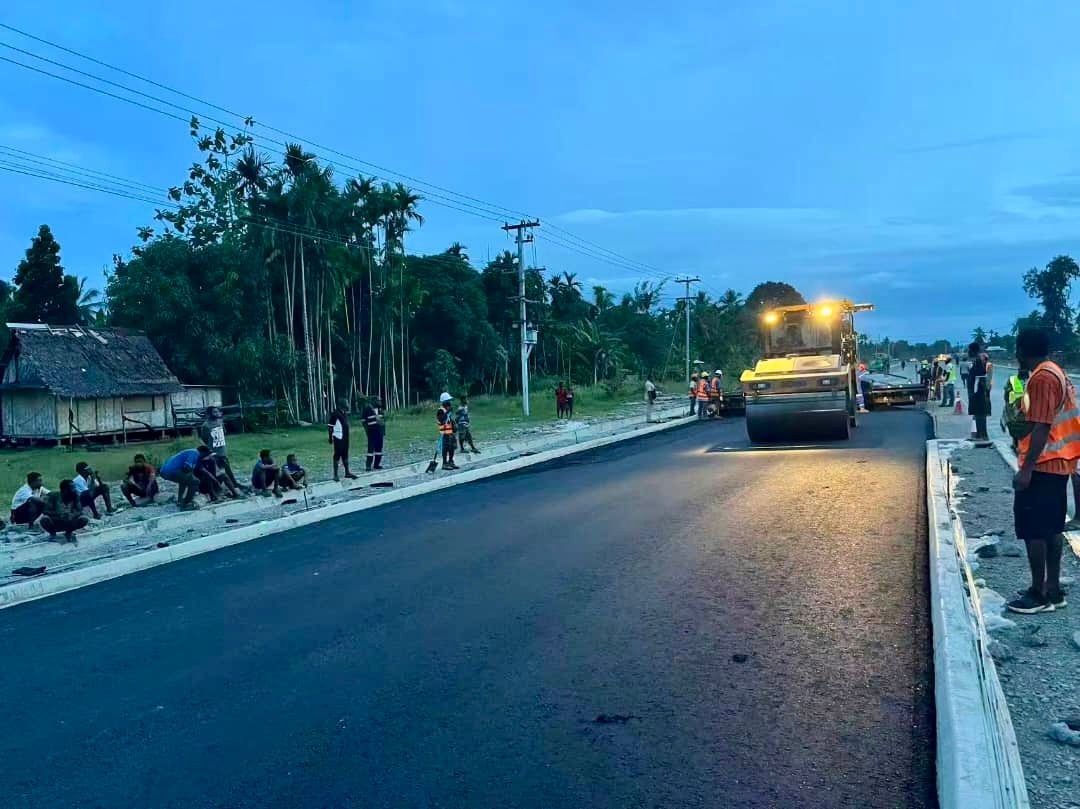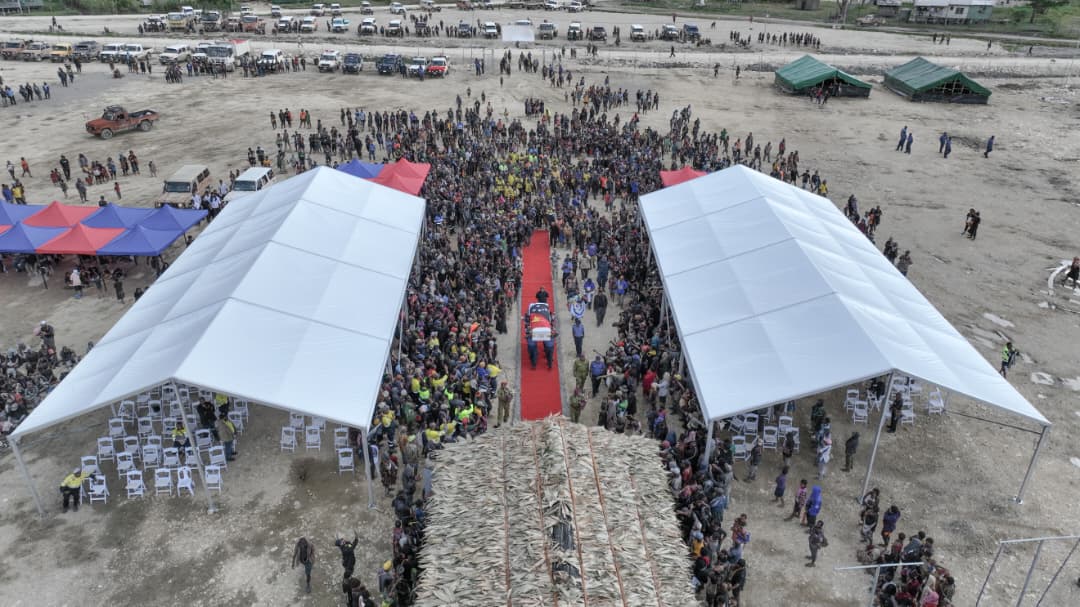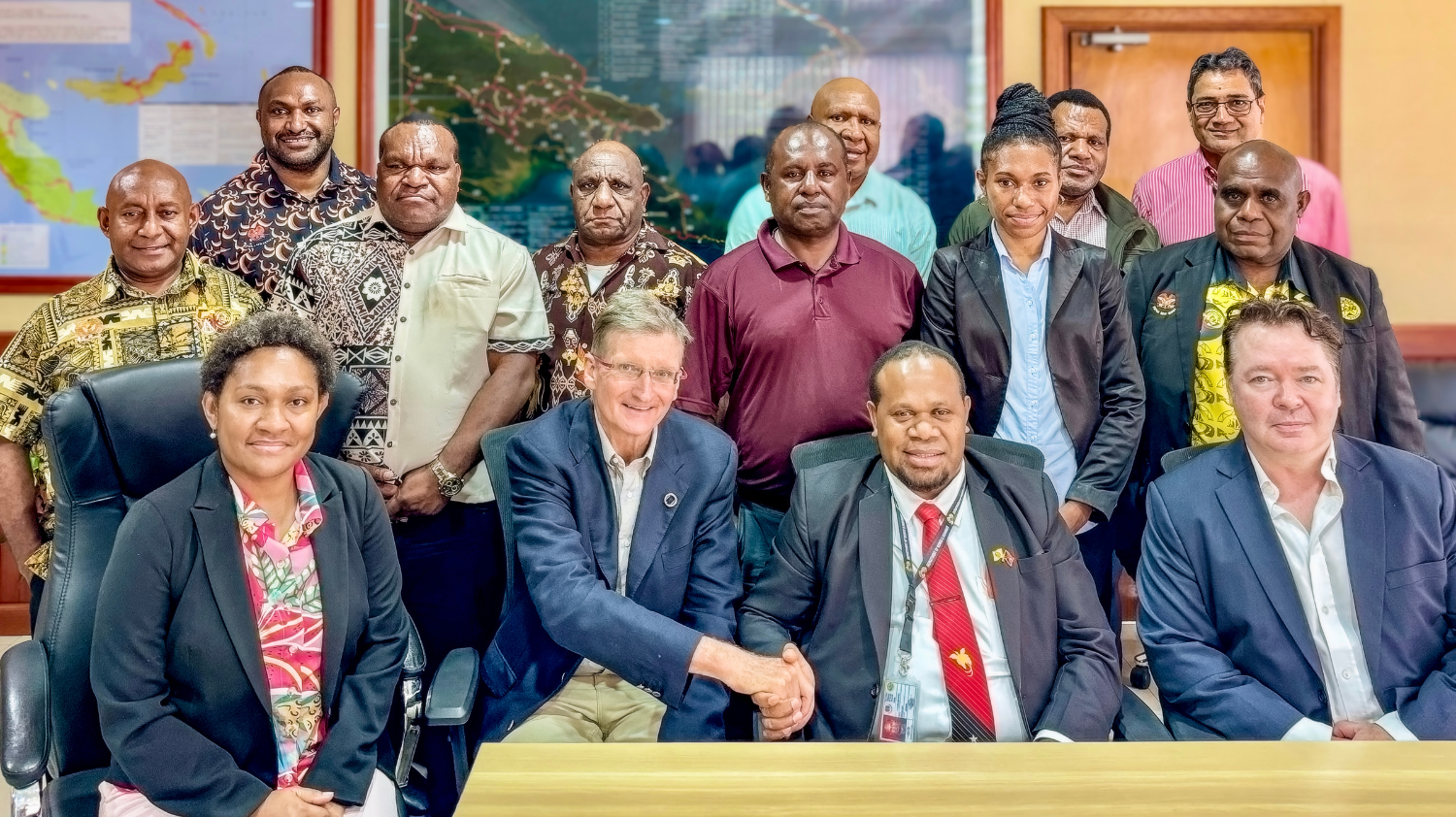Department of Works & Highways with Department of Transport signed a Partnership Plans Letter of Agreement to initiate the Australian Transport Sector Support Program Phase III
- by Content Writer
- 19th June 2025
.jpeg)
MEDIA RELEASE
By Gibson Holemba | Secretary for Works & Highways
Venue | Gateway Hotel
Time | 11:00am – 01:00pm
Distinguished Guest, Partners, Colleagues, Participants, the Media, Ladies and Gentlemen.
Firstly, I would like to acknowledge the presence of the Deputy High Commission to PNG, from the Australian High Commission, Mr. Adrian Lochrin, Secretary for Transport Mr. Mathew Wowoni and mistress of ceremony Dr Ellen Kulumbu for your eloquent introductory remarks on this important occasion.
On behalf of the Department and my two executive directors (Corporate Services) Mr. Willie Kupe and (Network Planning) Mr. Simeon Suagu and not forgetting the consultant and former secretary for Transport Department Mr. Roy Mumu. It is a privilege and honor to be part of this signing ceremony today.
I want to put on record the history of Department of Works & Highways in the context of our capacity issues, the successive government’s of the past and the National Executive Council (NEC) Decision 41/95 to downside the department which affected the functions of the department especially the ability of the Plant Transport Division (PTD) where in the past we do road maintenance ourselves with established works campsite along the road sides and conduct road maintenance on all our major road networks.
The decision to downsize caused the department to fall short of the road maintenance program and that was when the Australian Government stepped in with the rural upgrading works program in all our major road network before the Transport Sector Support Program (TSSP) initiative was introduced back in 2007.
The Australian Aid Partnership under the Transport Sector Support Program (TSSP) relationship with the Department of Works & Highways (DoWH) came about as a result of a World Bank advise on Land Transport sub- sector need for structural reforms to support the rural roads program like road construction equipment purchase and funding support for road maintenance works.
The National Road and Bridge Maintenance Program (NRBMP) was developed and after its completion there was a need for sustainability and that was when TSSP phase I program came on board, followed by phase II and now we will initiate the phase III of the TSSP. Australian Government Aid Partnership has the long-standing relationship with PNG and I would like to acknowledge that support in the road development space since pre- independence.
Secondly, the department has recently published in the post courier last week Friday 13th of June, the current national roads gazettal notice which stands at 13,750.45 kilometers of the road network in PNG. From the last national gazettal roads record the department had 8,807kms. This is an increase of 5000kms on the national gazettal road network in PNG.
The department is also working on the sub-national road gazettal program and eventually will update to confirm how many total roads network we have gazette so far which is the responsibility of the sub-national road’s authority like provinces and districts.
Other support like tax credit scheme funds that is coming from different stakeholders that are also partners with the department.
Thirdly the TSSP, since 2007 has really contributed immensely in support of many department programs and I was privileged to undergo a training from TSSP under the phase I where road maintenance programs implemented in almost 10 coastal provinces listed under the TSSP program initiative, towards the end of phase II this program got less prominence.
Today this training programs on rural road maintenance has to be revived in this phase III of the TSSP program. I’m glad that the PSP is picking up on this to identify where the need area is at the moment which is to support capacity strengthening in the department especially specialist training for engineers.
As the major recipient of the TSSP partnership program, capacity strengthening is a need in the department to train experts in specialist areas in engineering as part of the succession plan to replace the department’s aging workforce.
The TSSP Phase III program is timely because currently in the department I might be the only engineer that has undergone specialist bridge training and my assistant secretary (AS) for engineering services division is the only specialist Geotech engineer.
This signing today will go towards addressing those capacity issues supporting to develop and enhancing the department training needs in as far as the institutional capacity strengthen issue is concerned.
Finally, also, in the PSP arrangement under the TSSP phase III, the department will undergo an attaché program partnership with the Department of Transport as the policy regulatory agency to guide the department to implement this attaché program where provincial works managers will be sent down for training at Australian Universities that offers engineering courses as part of the capacity building program initiative under the TSSP III arrangements.
In conclusion, the challenge in the department is not the funding issue, it’s the mindset of our engineers and public servants and their attitude need to change. There is a cancerous attitude of staff that are more focused on payments and allowances, whilst they should be more focused on delivering services and that is what’s lacking at the moment.
Staff and public servants that are focused on service delivery to the people is what’s needed and with the support of the PSP, TSSP phase III initiative the department will identify those with such mentality of being service driven oriented to rewarded with this training opportunities then those who focus too much on allowance payment and funding issues.








.jpeg)
.jpeg)
.jpeg)
.jpeg)
.jpeg)
.jpeg)
.jpeg)
.jpeg)
.jpeg)
.jpeg)
.jpeg)
.jpeg)
.jpeg)
.jpeg)
.jpeg)
.jpeg)
.jpeg)
.jpeg)
.jpeg)
.jpeg)
.jpeg)
.jpeg)
.jpeg)
.jpeg)
.jpeg)
.jpeg)
.jpeg)




